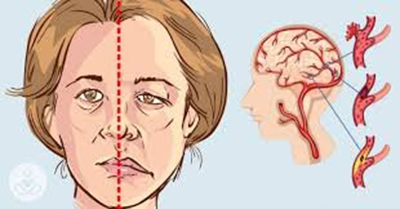
3. Diet Drinks Associated With Strokes |

![]()
![]() It is observed that drinking multiple diet drinks daily may not be a very good idea for post-menopausal women. A new study indicates that it is associated with an increased risk of having a stroke caused by a blocked artery. The study was published in Stroke, a journal of the American Heart Association.
It is observed that drinking multiple diet drinks daily may not be a very good idea for post-menopausal women. A new study indicates that it is associated with an increased risk of having a stroke caused by a blocked artery. The study was published in Stroke, a journal of the American Heart Association.
![]() Compared with women who consumed diet drinks less than once a week or not at all, women who consumed two or more artificially sweetened beverages per day were:
Compared with women who consumed diet drinks less than once a week or not at all, women who consumed two or more artificially sweetened beverages per day were:
- 23 % more likely to have a stroke;
- 31 % more likely to have a clot-caused (ischemic) stroke;
- 29 % more likely to develop heart disease (fatal or non-fatal heart attack); and
- 16 % more likely to die from any cause.
![]() Furthermore, researchers found risks were higher for certain women. Heavy intake of diet drinks, defined as two or more times daily, more than doubled stroke risk in:
Furthermore, researchers found risks were higher for certain women. Heavy intake of diet drinks, defined as two or more times daily, more than doubled stroke risk in:
- women without previous heart disease or diabetes, who were 2.44 times as likely to have a common type of stroke caused by blockage of one of the very small arteries within the brain;
- obese women without previous heart disease or diabetes, who were 2.03 times as likely to have a clot-caused stroke; and
- African-American women without previous heart disease or diabetes, who were 3.93 times as likely to have a clot-caused stroke.
![]() Researchers analyzed the data on 81,714 postmenopausal women (age 50-79 years at the start) participating in the Women's Health Initiative study that tracked health outcomes for an average of 11.9 years after they enrolled between 1993 and 1998.
Researchers analyzed the data on 81,714 postmenopausal women (age 50-79 years at the start) participating in the Women's Health Initiative study that tracked health outcomes for an average of 11.9 years after they enrolled between 1993 and 1998.
![]() "We don't know specifically what types of artificially sweetened beverages they were consuming, so we don't know which artificial sweeteners may be harmful and which may be harmless," Mossavar-Rahmani, the lead researcher said.
"We don't know specifically what types of artificially sweetened beverages they were consuming, so we don't know which artificial sweeteners may be harmful and which may be harmless," Mossavar-Rahmani, the lead researcher said.
"Unfortunately, current research simply does not provide enough evidence to distinguish between the effects of different low-calorie sweeteners on heart and brain health. This study adds to the evidence that limiting use of diet beverages is the most prudent thing to do for your health," said Rachel K. Johnson, Ph.D., R.D.,professor of nutrition emeritus, University of Vermont and the chair of the writing group for the American Heart Association's science advisory, Low-Calorie Sweetened Beverages and Cardiometabolic Health.
For enquiries info@jothydev.net.
Please visit: jothydev.net | research.jothydev.com | diabscreenkerala.net | jothydev.com/newsletter
